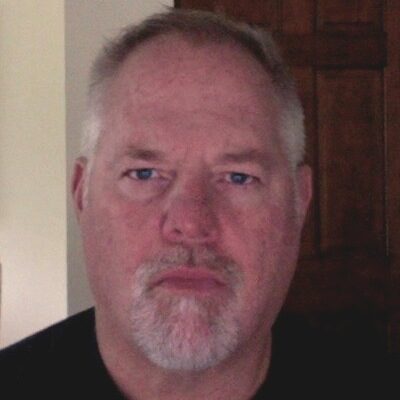Longtime journalist Tim Scheld attended St. Francis University and earned a B.S. in business management. His parents encouraged that particular degree, not particularly thrilled with the thought of their son pursuing broadcasting.
“They weren’t as confident in my radio dreams as I was,” Scheld said. “Sometimes I wonder how confident I was. I was in love with rock music. A lot of those radio DJs I grew up listening to are actually still on the radio today.”
Scheld wanted to study communications but still thought music was his thing. Journalism 101 cured him of the music bug.
“Once I got a taste of journalism classes, there was no turning back,” he explained. “I wrote for a local commercial radio station. Midway through my college education, I thought I’d become a news guy and dove right in. During my senior year, Ronald Reagan was shot, and I ran right to the station. On 9/11, I was a network correspondent at ABC News. I was in New York, and the city was my first priority. There was a mayoral primary scheduled on that day. I was at home when it happened and I obviously tried to get down there.”
For the past 19 years, Tim Scheld has been a brand manager and news director at WCBS Newsradio 880 in New York. This is one of many of what Scheld described as chapters in his life, a career beginning in 1982.
“As journalists, we have to think on a spatial level,” Scheld said. “We’re paid to be the eyes and ears, so we have to be keen on everything that’s going on and have the ability to give people the nuances. Describe facial expressions when that adds content. Anybody can cook a piece of meat. It takes a chef to know how to expertly season the meat.”
The next chapter in Scheld’s opus will be his chairmanship of the RTDNA.
“I think most people know about RTDNA from Edward R. Murrow Awards,” Scheld said. “It’s the most prestigious award in digital and broadcast journalism. The ceremony was held just last month. It was wonderful to see 500 people in a ballroom black tie event.”
Scheld said attendees came from all over America. Not just high-profile people like Lester Holt from NBC, he said there were young reporters, mid-career journalists.
“It was great to see the diversity of news coverage in America,” Scheld said.
“We’re about fostering ethical journalism, growing news leaders, highlighting award-winning work, fighting for and defending the First Amendment. Sounds simple, and I guess it is.”
Scheld explained that during the past few years, government officials and administrations have tried to limit access to media in courtrooms and city council meetings. He doesn’t like that direction.
“In our organization our main mission is to make sure what freedom of press is all about,” Scheld said. “We must have unfettered access to meetings, to hold truth to power. Without these we are in jeopardy. We must make sure journalism survives. RTDNA will be party to any lawsuit to make sure journalism can go on without hindrance.”
On an educational front, Scheld said the RTDNA wants to train a diverse crop of journalists. Help new journalists understand what being ethical means.
“We want to foster solution journalism, not just ‘got ya’ journalism. Without a voice in a community, it’s weaker. Cities all across the country have great media representatives, heritage stations.”
Should we fear that journalism will be subject to power and influence?
“I think fear is a strong word, but there’s most definitely a concern as to some aspects of media. Not just stifling the First Amendment. Our business needs to grow and innovate. Free press costs a lot. News is an investment, costly to operate. That’s why we’re lucky to have stations like WCBS.”
Scheld said the rewards of being a journalist can outweigh some of the sacrifices.
“Once a journalist experiences and understands the power and passion involved in good storytelling, a story that makes a difference, you get home and feel like you’ve won the Super Bowl,” Scheld said. “Once there’s that fire in your belly, the passion will overcome a lot of obstacles. It’s such a fulfilling and gratifying profession.”
News is and always has been a passion for Scheld. He said whatever he does moving forward will in some way be connected to news.
“I’m interested in seeing how the midterms will play out,” Scheld said. “See how the next presidential race will play out. I do have things I want to do if I can stay healthy. I’ve had multiple chapters in my life. One of the reasons I took a job in management is because I spent a lot of my life traveling for ABC on a moment’s notice. I’ve covered so many unforgettable things; Lady Diana’s funeral, was in Russia with Bill Clinton and through his impeachment issues. I was in Israel when the pope went to visit.”
Is there a book in all of his experiences?
“Everybody in my family has encouraged me to write a book,” Scheld explained. “I just don’t know if it’s as interesting to others as it is to me. I have the bones of a book laid out. I wrote a journal during the pandemic, including pictures. I’m a packrat with audio. I have dozens of boxes, min-discs, and companion audio.”
Scheld has long held organizations like the Poynter Institute in high regard as one of the best ethical organizations in the country.
“Without the Poynter, we’d all be in trouble,” Scheld said. “Journalism is all about discovery and learning. It’s a challenge for any young journalist. This is a profession where you can wake up and ask what you’re going to learn today.”
He explained as a journalist you have to be like a juror in a court case. A judge instructs the jury, the case is not about who you know, who you grew up with, who your friends are.
“You go into a courtroom and make decisions based on facts,” Scheld said. “You can cover a story devoid of bias, but not devoid of facts. Ask yourself if you can go to work and cover a story and understand the difference between commentary and editorial journalism. I think that’s a challenge. It’s hard not to be emotional when you talk to someone about the Oklahoma City bombing or something like the Uvalde shooting. How do you not get upset when you’re writing about a guy who filled a truck with explosives, parked it near a daycare center he knew kids were in. You still have to report it neutrally, but that doesn’t mean you’re devoid of being human.”
9/11 has become a mission for Scheld and other New York-based journalists who covered the event first-hand.
“We never gave up on the story,” he said. “At WCBS we were committed to staying with it. It was our story. I’ve long been concerned and interested in the impact on the New York Fire Department. It’s a commitment I made in my heart. That includes 15 thousand employees, including EMTs. Since 9/11, twenty-five percent of the first responders have some kind of cancer. Are all of them related to the towers? Probably not. But a lot of people suffered.”
“I was getting ready to go to work, literally on my porch,” Scheld explained. “I probably had a pager at the time. Every street and avenue into the city was blocked off. The George Washington bridge was closed. Finally, my wife and I devised a plan. After the towers fell, I put my wife’s mountain bike into the car and we drove as far as Riverdale in the Bronx. We couldn’t go any further. I rode into town that way.”
Scheld was on the northern side of the city, not directly where people were experiencing all the trauma by the towers. He’d stop his bike every once in a while and give a description of the people and the landscape he was seeing.
“I was providing a little slice of what I saw going on. Parents picking up their kids at school. People trying to get out of Manhattan. I rode past Columbia University, watched Mayor Guiliani giving a briefing outside a storefront. I remember the military jets flying overhead. By the time I got to the office, hospitals were in full emergency mode. I visited the blood banks.”
It was a numbing few days for the country. Scheld said he had trouble getting a sense of how big it all was.
“I knew the city, basically grew up covering the city. I covered the World Trade Center bombing in 1993. I remember the blackened faces coming out of the towers. On 9/11, I knew there were more telephone exchanges in the two towers than in the city of Detroit on that day.”
While he’s not retiring by any means, Scheld said it will be nice to spend some more time with his family.
“My kids are grown. Running an organization in news can be draining, as much as I’ve loved it,” he explained. “But this isn’t my eulogy. I’m not going away. Nobody in this business could do anything without the sacrifice within their family. We’re going to France in a few weeks to see our daughter who took a teaching job there. It’ll be Thanksgiving in Paris.”
Now that sounds like a movie title.

Jim Cryns writes features for Barrett News Media. He has spent time in radio as a reporter for WTMJ, and has served as an author and former writer for the Milwaukee Brewers. To touch base or pick up a copy of his new book: Talk To Me – Profiles on News Talkers and Media Leaders From Top 50 Markets, log on to Amazon or shoot Jim an email at jimcryns3_zhd@indeedemail.com.







